Contrary to what you might think, the night is a very active period for the body.
During sleep, the digestive system keeps working! The liver focuses on eliminating toxins, muscles regenerate, and the hormones involved in fat metabolism are secreted.
For these functions to occur optimally, the body needs good hydration, as well as a calm, soothing environment for restorative sleep.
Certain plant-based, micronutrient-rich drinks can help improve satiety, support the body’s natural drainage, stimulate metabolism, and improve digestion.
As a dietitian, I have selected 5 slimming drinks to favor in the evening to support the body’s natural mechanisms and your overall dietary balance.
📚 Read also | A dietitian compared the best-selling slimming programs
1. A green smoothie to help you feel fuller
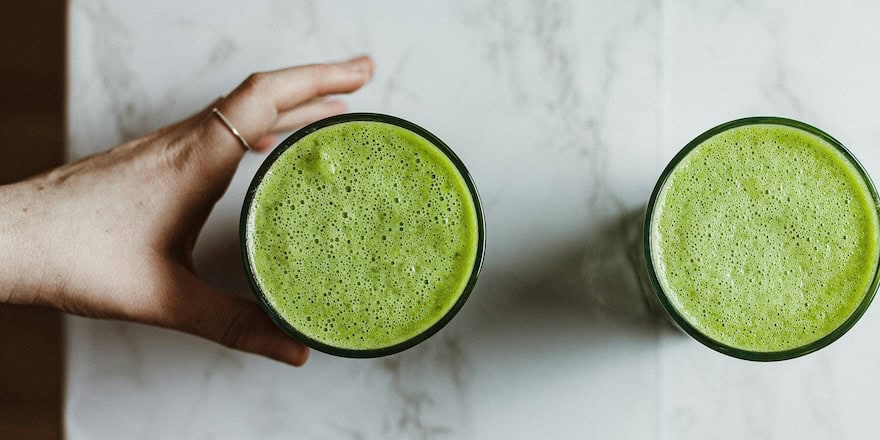
To help balance the evening meal, preparing a green smoothie or a vegetable-based green smoothie is an excellent option.
Consumed one hour before dinner, a green vegetable juice can help calm cravings, prevent overeating at the table, and stabilize blood sugar.
It also aids digestion. By stimulating the production of bile in the liver and digestive enzymes, thanks to the chlorophyll and antioxidants found in raw vegetables.
I recommend a simple blend of vegetables to drink 30 minutes to 1 hour before the evening meal, for example:
- 1 handful of young spinach shoots
- ½ lemon
- ½ avocado
- 1 small piece of ginger
- 1 teaspoon of soaked chia seeds
Finally, drink it chilled, preferably. I do, however, recommend avoiding an ice-cold temperature so as not to disrupt digestion.
2. Milk kefir, a natural probiotic
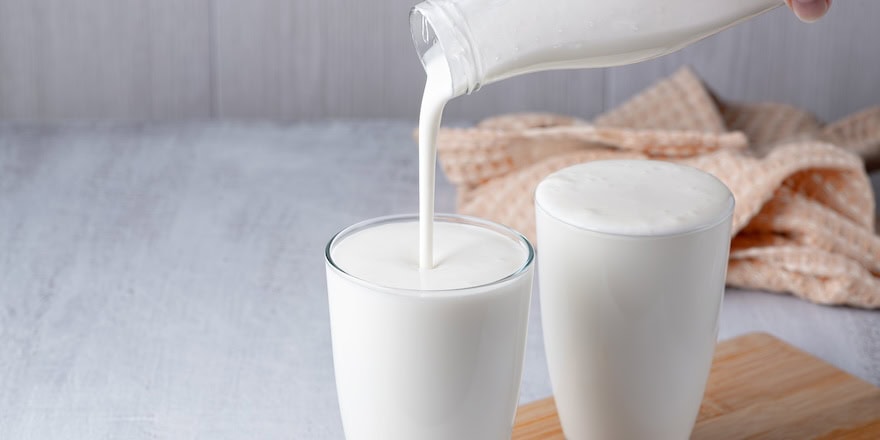
The kefir is a protein-rich fermented beverage, particularly high in casein and whey. This study showed that consuming 40 g of casein before bedtime improves muscle recovery in athletes and prolongs the feeling of satiety.
Its essential amino acids, including tryptophan, also support proper melatonin synthesis, the sleep hormone. It helps to properly synchronize our biological clock.
In addition to its protein content, kefir contains beneficial bacteria that support gut health and may have a positive influence on weight control.
Derived from a symbiotic culture of bacteria, it is generally beneficial even for people who are lactose intolerant. However, I recommend that people with allergies opt for plant-based drinks instead.
Another benefit: its high potassium content helps balance sodium, thereby limiting water retention and reducing bloating.
To enjoy its benefits without weighing down digestion, I recommend consuming the plain kefir or kefir with a pinch of cinnamon, in small amounts, in the evening after dinner: about 150 ml.
📚 Also read | 15 probiotics reviewed by a doctor
3. Fenugreek infusion to regulate appetite and blood sugar
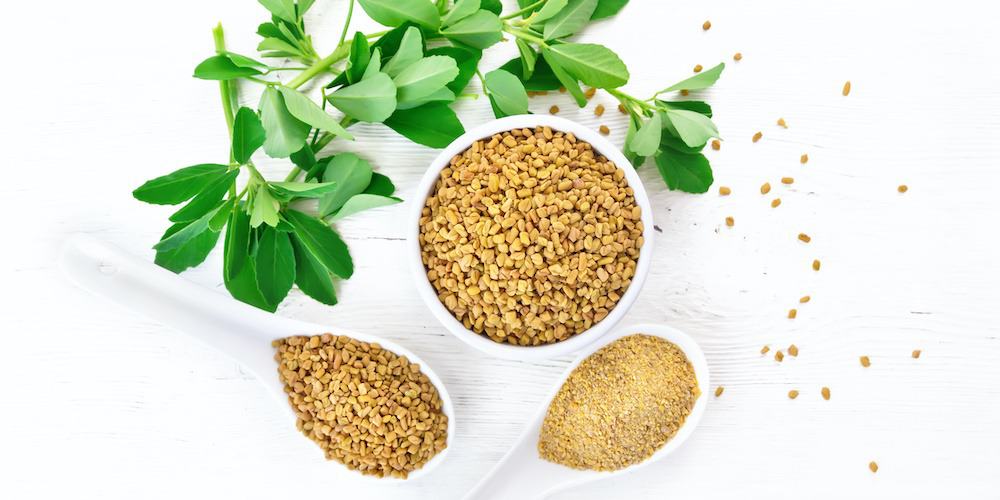
The fenugreek, Trigonella foenum-graecum, has been used since ancient times for its metabolic properties.
Its seeds, rich in mucilages, saponins and alkaloids, have a natural hypoglycemic effect.
This means they help stabilize blood sugar and limit nighttime cravings related to blood sugar fluctuations.
Fenugreek also acts to moderate appetite by modulating certain neurotransmitters such as dopamine.
As an infusion, it helps curb late-night hunger, an effect that is particularly interesting, especially during periods of dietary rebalancing.
My tip: consume it 30 to 60 minutes before bedtime, preparing it as a decoction with a teaspoon of fennel seeds in 250 ml of water.
Let it simmer for 5 to 10 minutes. And if needed, to soften its relatively bitter taste, add a few mint leaves.
4. An hibiscus infusion to gently aid drainage
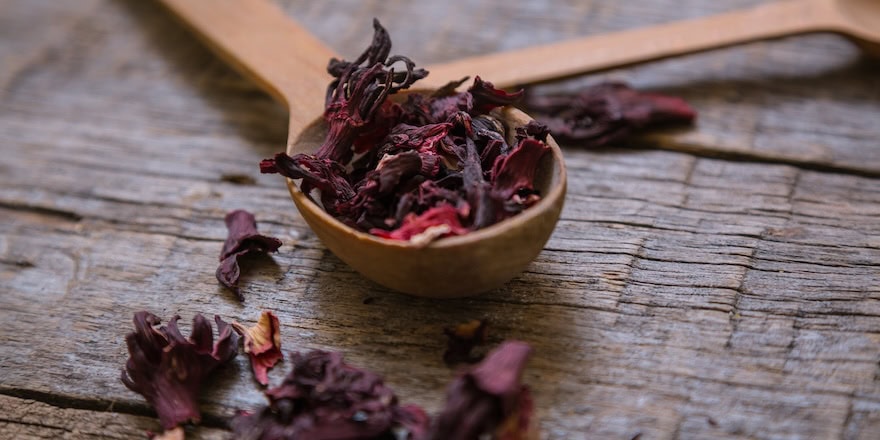
Known as “bissap” in West Africa, hibiscus is a flower rich in polyphenols, powerful antioxidants.
Its mild diuretic action, without potassium loss, is equally beneficial for blood circulation.
It is an ideal evening drink to accompany a process of nighttime detoxification without disrupting sleep.
Another reason I recommend it is that it also contributes to the body’s acid-base balance, often disrupted by an overly rich diet.
My tip: let 1 tablespoon of dried flowers steep in 300 ml of hot water for 10 minutes. Its tangy flavor can be paired with a little orange or lemon zest.
5. The traditional chamomile-verbena
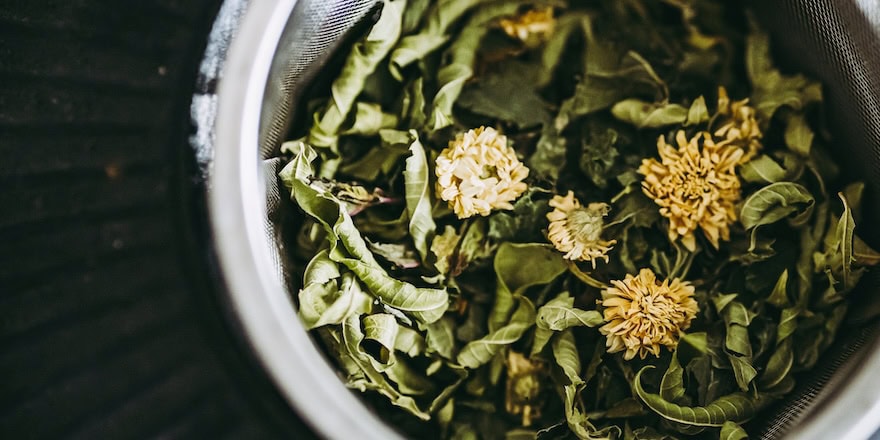
This herbal tea is not called \”sleep tea\” by chance. It has been used for centuries to promote sleep onset, thanks to compounds like apigenin and bisabolol that act as mild natural sedatives.
Today, chamomile tea is also used to relieve muscle spasms, soothe abdominal pain and irritable bowel syndrome, indigestion and bloating.
Finally, as a plant rich in antioxidants, chamomile contributes to the regulation of lipid metabolism, thereby promoting fat burning.
My advice: steep 1 to 2 teaspoons of dried chamomile flowers in 200 ml of simmering water, cover and let sit for 10 minutes. Consume it 30 to 60 minutes before bedtime, without added sugar.
No single drink on its own causes weight loss or can be presented as a miracle cure. However, some, when consumed at the right time, can help the body function better.
I invite you to choose the suitable digestive beverages, satisfying or relaxing ones that match your preferences in flavor and benefits: one simple cup of the right brew can become a precious ritual for your well-being.
Sources and scientific studies
Liu, R.H, Health-promoting components of fruits and vegetables in the diet, Adv Nutrition, 2013
Res PT, Groen B, Pennings B, et al. Protein ingestion before sleep improves postexercise overnight recovery, Medicine and Science in Sports and Exercise, 2012
Neelakantan, N., et al., Effect of fenugreek on glycemia: a meta-analysis of clinical trials, Journal of Ethnopharmacology, 2014
Herrera-Arellano A., Miranda-Sánchez J., Avila-Castro P., et al., Clinical effects produced by a standardized herbal medicinal product of Hibiscus sabdariffa on patients with hypertension, Phytomedicine, 2007
McKay DL, Blumberg JB., A review of the bioactivity and potential health benefits of chamomile tea (Matricaria recutita L.), Phytotherapy Research, 2006



